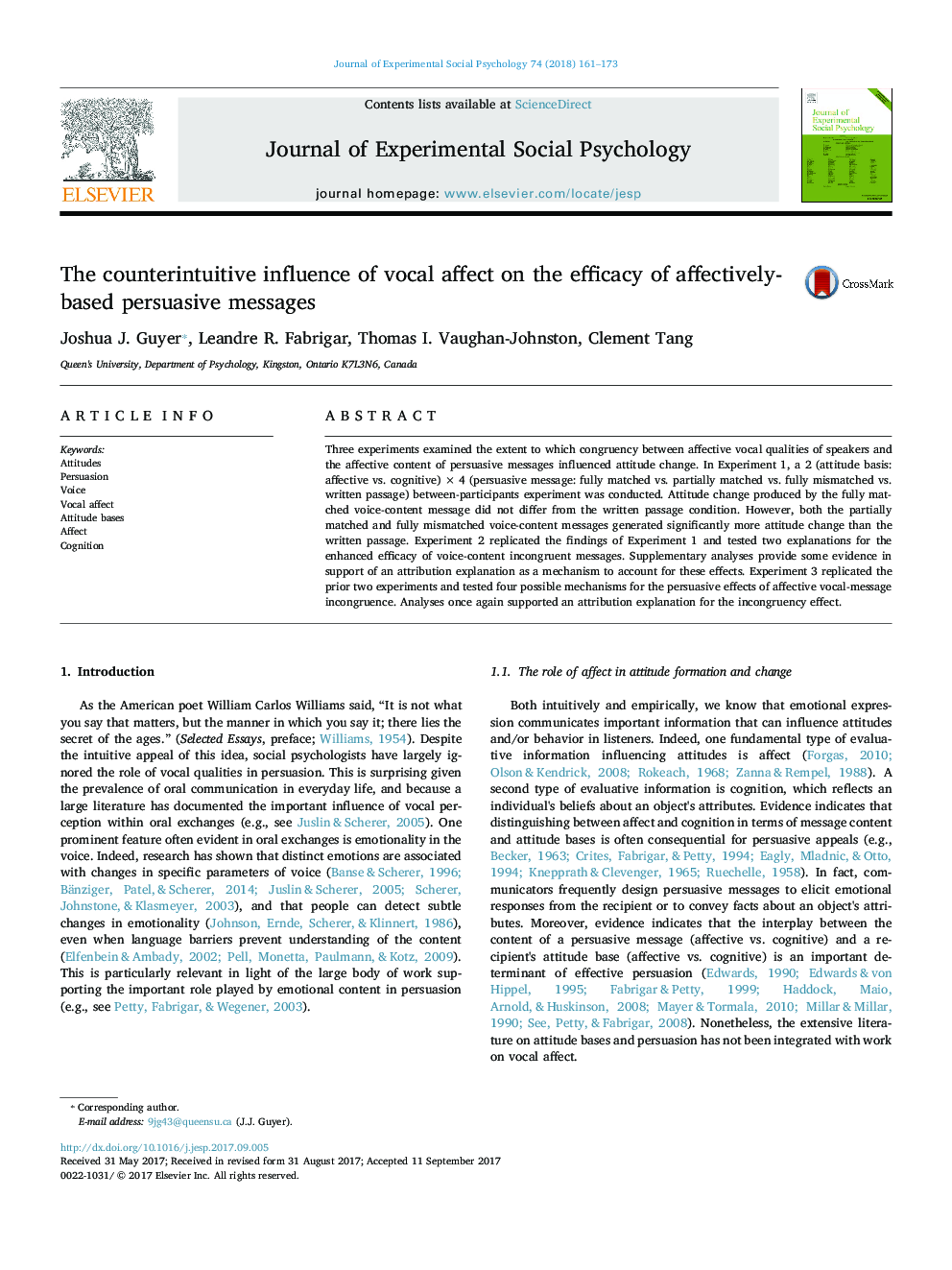| Article ID | Journal | Published Year | Pages | File Type |
|---|---|---|---|---|
| 5045597 | Journal of Experimental Social Psychology | 2018 | 13 Pages |
Three experiments examined the extent to which congruency between affective vocal qualities of speakers and the affective content of persuasive messages influenced attitude change. In Experiment 1, a 2 (attitude basis: affective vs. cognitive)Â ÃÂ 4 (persuasive message: fully matched vs. partially matched vs. fully mismatched vs. written passage) between-participants experiment was conducted. Attitude change produced by the fully matched voice-content message did not differ from the written passage condition. However, both the partially matched and fully mismatched voice-content messages generated significantly more attitude change than the written passage. Experiment 2 replicated the findings of Experiment 1 and tested two explanations for the enhanced efficacy of voice-content incongruent messages. Supplementary analyses provide some evidence in support of an attribution explanation as a mechanism to account for these effects. Experiment 3 replicated the prior two experiments and tested four possible mechanisms for the persuasive effects of affective vocal-message incongruence. Analyses once again supported an attribution explanation for the incongruency effect.
